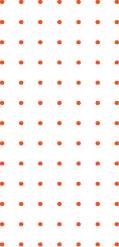Nursing & Medication

Nursing and Medication
Ashley Care Home nursing encompasses autonomous and collaborative care of individuals of all ages, families, groups and communities, sick or well and in all settings. Nursing includes the promotion of health, prevention of illness, and the care of ill, disabled and final days of their journey. Advocacy, promotion of a safe environment, research, participation in shaping health policy and in patient and health systems management, and education are also key nursing roles.
Nursing is the protection, promotion, and
optimization of health and abilities, prevention of illness and injury, alleviation of suffering through the diagnosis and treatment of human response, and advocacy in the care of individuals, families, communities, and populations.
With the growing reliance on medication therapy as the primary intervention for most illnesses, patients receiving medication interventions are exposed to potential harm as well as benefits. Benefits are effective management of the illness/disease, slowed progression of the disease, and improved patient outcomes with few if any errors. Harm from medications can arise from unintended consequences as well as medication error (wrong medication, wrong time, wrong dose, etc.).
With inadequate nursing education about patient safety and quality, excessive workloads, staffing inadequacies, fatigue, illegible provider handwriting, flawed dispensing systems, and problems with the labeling of drugs, nurses are continually challenged to ensure that their patients receive the right medication at the right time. The purpose of this chapter is to review the research regarding medication safety in relation to nursing care. We will show that while we have an adequate and consistent knowledge base of medication error reporting and distribution across phases of the medication process, the knowledge base to inform interventions is very weak.
With the growing reliance on medication therapy as the primary intervention for most illnesses, patients receiving medication interventions are exposed to potential harm as well as benefits. Benefits are effective management of the illness/disease, slowed progression of the disease, and improved patient outcomes with few if any errors. Harm from medications can arise from unintended consequences as well as medication error (wrong medication, wrong time, wrong dose, etc.).
With inadequate nursing education about patient safety and quality, excessive workloads, staffing inadequacies, fatigue, illegible provider handwriting, flawed dispensing systems, and problems with the labeling of drugs, nurses are continually challenged to ensure that their patients receive the right medication at the right time. The purpose of this chapter is to review the research regarding medication safety in relation to nursing care. We will show that while we have an adequate and consistent knowledge base of medication error reporting and distribution across phases of the medication process, the knowledge base to inform interventions is very weak.
- 24-Hour supervision and security
- 24-Hour Nursing Care
- 24-Hour Ambulance/Hearse Van Services
- Palliative & Geriatric Care
- Healthy Home Cooked Meals
- Community Prayers
- Basic housekeeping
- Laundry
- Health and exercise programs
- Physiotherapy
- Social programs
- Transportation
- Access to medical services
Ashley Care Homes
How can we help you?
Contact us at the Ashely care home and we will reach you shortly
Love to Volunteer?
Reach out to us and will delighted to have you join us.

Professional Healthcare
Services
01.
Geriatric Care
Seniors with chronic physical or developmental conditions often require coordination of multiple physicians.
02.
Nursing And Medication
Ashley Care Homes nursing encompasses autonomous and collaborative care of individuals of all ages.
03.
Palliative Care
Ashley Care Homes palliative care is an approach that improves the quality of life of patients.
04.
Assisted Living
A relatively new concept 25 years ago, today assisted living is the fastest growing long-term care home option for seniors.
05.
Elderly Care
One of the most difficult decisions an adult can face is to determine when to get involved in an elderly loved one’s care.
06.
Sore Throat
Nisl tempus, metus, sollicitudin amet, porttitor erat magna congue dui malesuada vestibulum.
Your Care Staff
Experienced Care










FAQ,s
Our visiting hours are from
10:00 A.M. to 12:00 P.M. and 4:00 P.M. to 6:00 P.M.
Lunch – 12:30 P.M. to 1:00 P.M.
Rest time – 2:00 P.M. to 4:00 P.M.
However, exceptions may be made depending on the circumstances, though not at all times. All the visitors are required to sign the visitor’s register.
10:00 A.M. to 12:00 P.M. and 4:00 P.M. to 6:00 P.M.
Lunch – 12:30 P.M. to 1:00 P.M.
Rest time – 2:00 P.M. to 4:00 P.M.
However, exceptions may be made depending on the circumstances, though not at all times. All the visitors are required to sign the visitor’s register.
All medicines are administered under supervision. We do not give any medicine without prescription. Patients are not allowed to keep or handle medicines alone; self-medication is strictly not allowed in our care home. The patient’s family is required to bring medicines for a period of one month upon admission; thereafter, we will procure the same based on followup instructions from the patient’s attending doctor; understandably, these medicines will be billed.
Our nursing team is headed by a senior nursing superintendent, with 30 plus years of experience in a reputed hospital. We have staff in-charge nurses to oversee the bedside attendants, and a 1:1 ratio of bedside attendants to patients. This allows us to take care of the residents in a most personalized way. We also provide the services of physiotherapists.
Other than assisting with bathing, dressing, feeding, and mobility, the in-charge nurses are capable of doing wound dressings, catheterization, suctioning, Ryle’s tube insertion, PEG feedings, etc. They are also trained to administer oxygen and medicines, blood sugar checks, and aid in physiotherapy and monitor vital signs on a daily basis.

